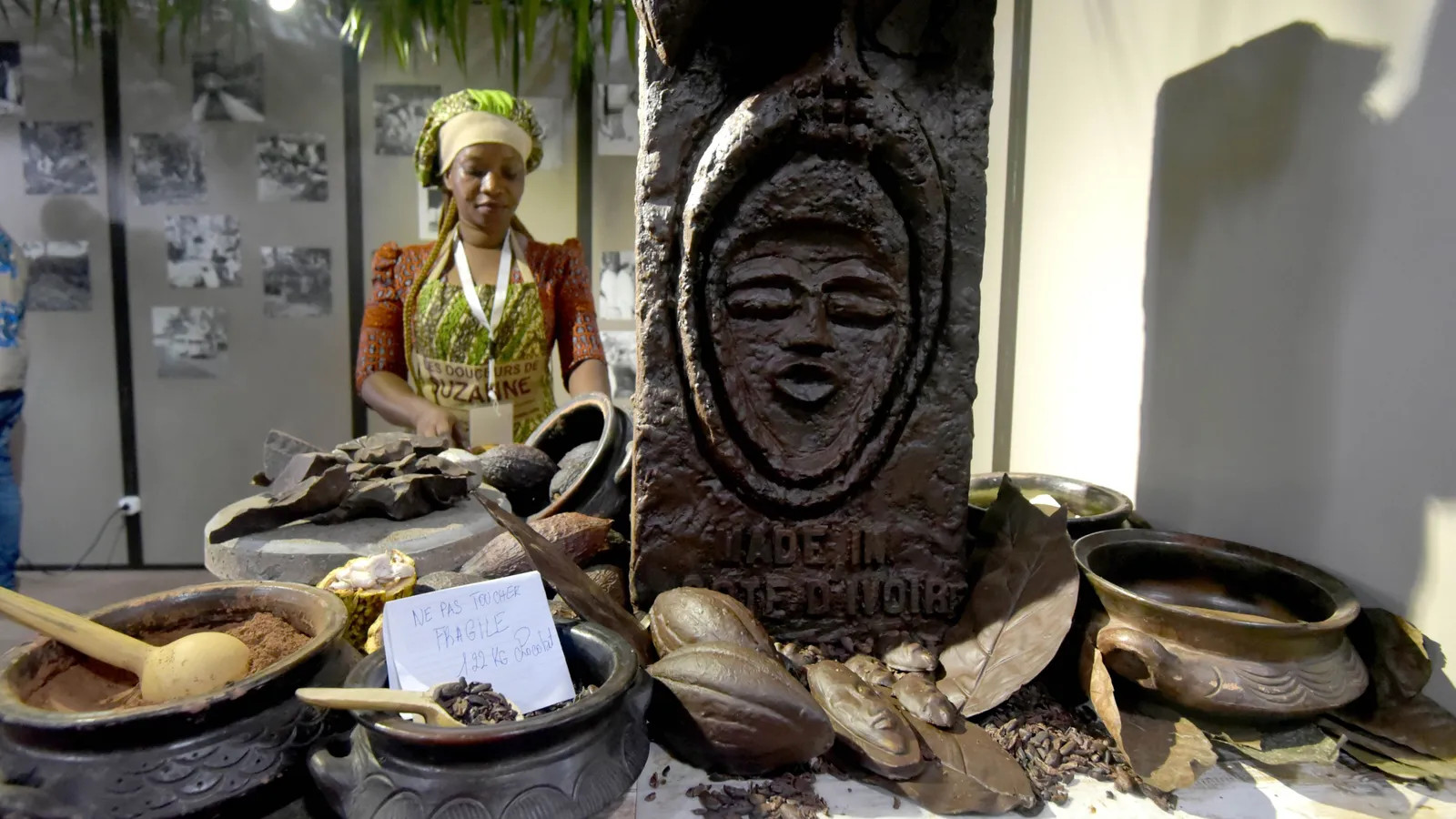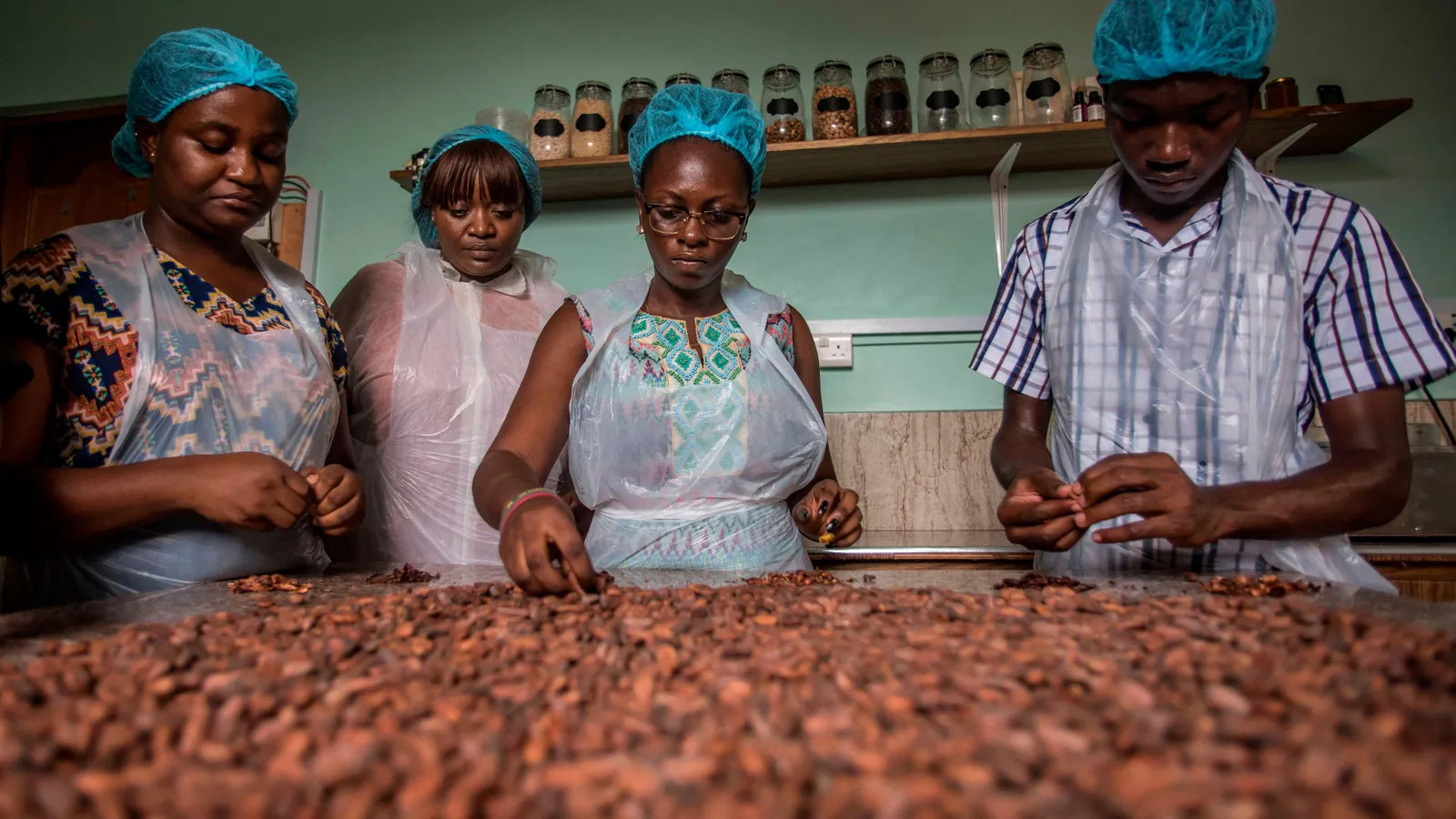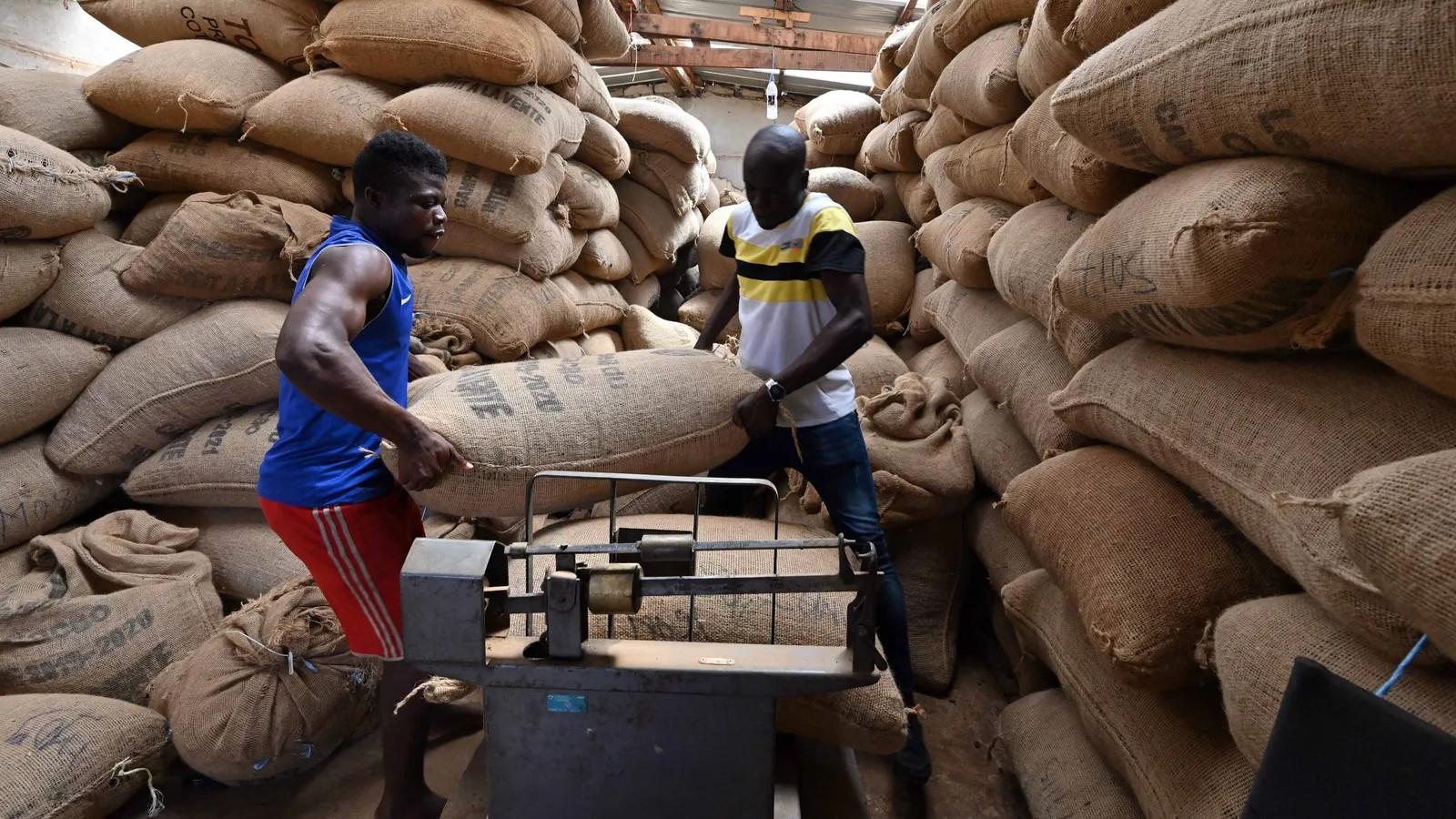
Date: 2025-10-19 Page is: DBtxt003.php txt00022696
COTE D'IVOIRE
CACAO
BBC FUTURE PLANET | A FAIR CLIMATE | The powerful new use for cocoa
CACAO
BBC FUTURE PLANET | A FAIR CLIMATE | The powerful new use for cocoa

Cocoa is a huge part of life and the economy in Ivory Coast, but until now the husks of the cocoa pod have been discarded as waste (Credit: Getty Images)
Original article: https://www.bbc.com/future/article/20210607-a-chocolatey-sustainable-alternative-to-fossil-fuels
Peter Burgess COMMENTARY
I was active in West Africa for many years first as the CFO of a shrimp fishing company that operated in the area and later as an indenpendent consultant doing work fo the UN, the World Bank and others. One of my clients was active in the agricultural sector of the Cote d'Ivoire and was a major exporter of coffee and cacao.
One of the things I learned working in West Africa was the unfair advantages that were embedded in the international trade rules to favor European countries over African countries. The raw material for fancy chocolate is grown in West Africa, but all the famous chocolate brands are fabricated in places like Switzerland, Belgium et al. It is very difficult to market at retail chocolate product in the USA or Europe if it is produced in Africa, but easy to export the raw material from Africa into Europe or the USA. There is little profit in trading the raw material but a good profit from marketing the retail chocolate.
The end of the colonial era in the 1960s was welcomed by most of the world, but it was done in a very sloppy way. As a result, there are a lot of vestiges of old trade practices that still exist and continue to do damage. Fewer and fewer people in positions of power have much interest or experience in these matters, and they are likely to go on for a long time more.
It should also be of concern that rich countries that used to make a substantial contribution to global development investment have been sutting back for years and years if not for decades. The structure of international industry has changed substantially over the past few decades, but not in a way that is likely to benefit the poorer countries around the world. This should be of concernt to global leaders, but it is almost totally ignored.
Few people seem to have much awareness of the global development decline that has been a feature of the past few decades. It will be a cause of profound instability in the years to come unless some thoughtful steps are taken soon.
Peter Burgess
By Gitonga Njeru
8th June 2021
The world's largest producer of cocoa, Ivory Coast, has found an inventive use for the cocoa plant that could power millions of homes.
If you've indulged in a chocolate dessert lately, there is a good chance that its cocoa came from Ivory Coast. This West African country is the largest producer of cocoa in the world, where more than 40% of all cocoa beans originate. With more than six million people working in cocoa in the country, it is Ivory Coast's largest export by far. The country's cocoa beans have been fuelling people worldwide for decades, but now another part of the cocoa plant will soon be powering Ivory Coast.
The coveted cocoa bean is just one small part of the cocoa plant. While the beans are exported to be made into chocolate bars, confectionary and drinks, the bean shells, pod husks and cocoa sweatings (a pale yellowish liquid that drains away during fermentation) are usually thrown away. Worldwide, the volume of cocoa waste is steadily growing.
This waste is now set to become a significant part of Ivory Coast's transition to renewable energy. After successful pilot projects, Ivory Coast has begun work on a biomass plant which will run on cocoa waste. The facility will be located in Divo, a town that produces a large share of the country's cocoa. In the biomass plant, cocoa plant matter left over after cocoa production will be burned to turn a turbine and generate electricity, much like a conventional fossil-fuel power plant.
'This plant alone will be able to meet the electricity needs of 1.7 million people,' says Yapi Ogou, managing director of the Ivorian company Société des Energies Nouvelles (Soden), which is involved in building the plant.
Cocoa boost
The Divo biomass power plant will be West Africa's largest, and Soden, with support from the US Trade and Development Agency, is set to complete by early 2023. It will be able to produce between 46 and 70MW of electricity per year, according to Ogou. Feasibility studies showed that the facility could reduce greenhouse gas emissions by 4.5 million tonnes, compared with existing power sources.

The cocoa bean is the most valuable part of the crop, but other parts of the cocoa plant have their uses too (Credit: Getty Images)
Ivory Coast currently gets most of its power from fossil fuels, with natural gas generating 70% of its energy. The country has a target increasing usage of renewable energy sources to 42% and cutting greenhouse gas emissions by 28% by 2030. In a country with fast-growing energy needs, innovations such as the use of cocoa waste could make all the difference.
In total, the project will cost about 131 billion West African CFA francs (£173m/$244m). Nine other similar plants that will generate electricity from cocoa husks are planned to be built across the country. They will be built in cocoa growing areas where the raw material is in ready supply.
As well as producing renewable energy, it is hoped that turning cocoa waste into energy will help reverse the fortunes of the country's some 600,000 cocoa farmers. Fraciah, who manages 14 acres of cocoa in Divo, is one of them. For many years, she has been thinking of abandoning cocoa farming altogether in favour of rubber farming. She is not alone – in recent years, many cocoa farmers have been switching to more profitable crops such as rubber or banana due to an oversupply of cocoa – something that has only become worse the Covid-19 pandemic.
'I grow cocoa and it has educated my children but the returns have been minimal,' she says. 'We don't make much profit.' But she welcomes the new biomass power plant, saying it will add to her income and it motivates her to continue cultivating cocoa. 'Considering I am a widow – my husband died 18 years ago – extra income will also help me educate my four grandchildren. With more money, I can also save.'
Alongside the opening of the new plant, the Ivorian government has also proposed a community cooperative for cocoa farmers. Groups of farmers will be able to save money and access loans, and receive dividends to support their families and businesses.

The large plant in Ivory Coast is the first of nine further facilities planned to make use of cocoa husks and other biomass (Credit: Getty Images)
Mohammed Adow the founder of Powershift Africa, a thinktank located in Nairobi which has advised governments across Africa on energy issues, says that the Ivory Coast initiative comes at a critical time. 'Successful utilisation of these cocoa pods will not only ensure universal access to electricity, but also add value to the cocoa production value chain, in addition to other economic benefits,' says Adow. 'Job creation through collection, transportation, storage and processing of the pods will be realised. It will empower many economically.'
Esther Ruto, general manager of Kenya's Rural Electrification Authority, also welcomes the cocoa power plant. 'It's a good move,' she says, citing job creation and waste reduction as additional benefits of the plant. 'Ivory Coast is one of Africa's success stories with 94% of its population already connected to the national grid.'
Ivory Coast is not the only cocoa producer to put its waste to use. In Ghana, cocoa husks are already being used to generate power on a micro-scale. Researchers Jo Darkwa, Karen Moore and colleagues at the University of Nottingham in the UK have developed a small 5kW generator which runs off cocoa husks. The goal is to bring power to rural areas, where only 50% of people typically have access to electricity. In Ivory Coast, there are also plans for facilities to convert the husks into biodiesel, Ogou says.
Finding more uses for the waste products of one of the world's most-loved crops could help keep farmers supplying the chocolate industry for years to come – even as climate change makes it harder to grow cocoa. But even within a crop that faces many pressures there is a seed, or rather a husk, of hope.
The emissions from travel it took to report this story were 0kg CO2. The digital emissions from this story are an estimated 1.2g to 3.6g CO2 per page view. Find out more about how we calculated this figure here.